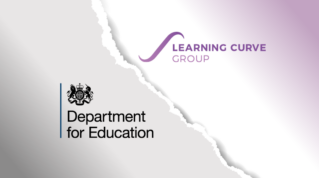The Education and Skills Funding Agency’s (ESFA) new chief has voiced plans to introduce a financial handbook for independent training providers, as part of a pledge to improve partnership working between the agency and the sector.
David Withey, who became ESFA chief executive in August, said the handbook will be an equivalent of the academies trust handbook, and hoped it would aid ITPs in their understanding of funding rules and procedures – essentially acting as their “bible”.
Speaking in Manchester on Tuesday at the Association of Employment and Learning Provider’s autumn conference, Withey said: “One of the things we have been thinking about recently is an ITP handbook, based on the model we have for academies – a financial handbook intended to be the bible that sets out how everything should work in one place.
“That isn’t perfect, but it does bring things together in a single place to be a bit clearer.”
“We have been working with AELP and a number of individual ITPs to work out how we can make that happen because it is probably more complicated in this space.”
Academy trusts must comply with the rules in the academy trust handbook as part of their funding agreements, and contains guidance on the main financial requirements for trusts, scrutiny checks, annual accounts and external audits, and regulation and intervention.
In addition, Withey said he wanted to ensure the funding rules were simpler to understand for providers.
He said he finds some of the frameworks “pretty complex” and added: “A handbook or rules only can truly help people if the rules, frameworks and procedures it encompasses are appropriately simple to understand.”
Furthermore, the ESFA is planning to release an online version of its data analysis tool this month to act as a “data self-assessment toolkit” to help ITPs identify potential data anomalies.
During his speech, Withey voiced ambitions for a better balance between its regulatory work and guidance for providers. “I think it is probably fair to say we are not getting that balance right all of the time,” he said.
“Because, if this is working well, if that balance is balanced, then it means you might discover a funding issue or you might be a bit uncertain about an approach to funding rules, and feel able to come and talk to us about it without fear of consequences.”
He added: “What I ultimately want to achieve is a shift in perspective of the agency to a greater, more supportive partnership.”
















Your thoughts